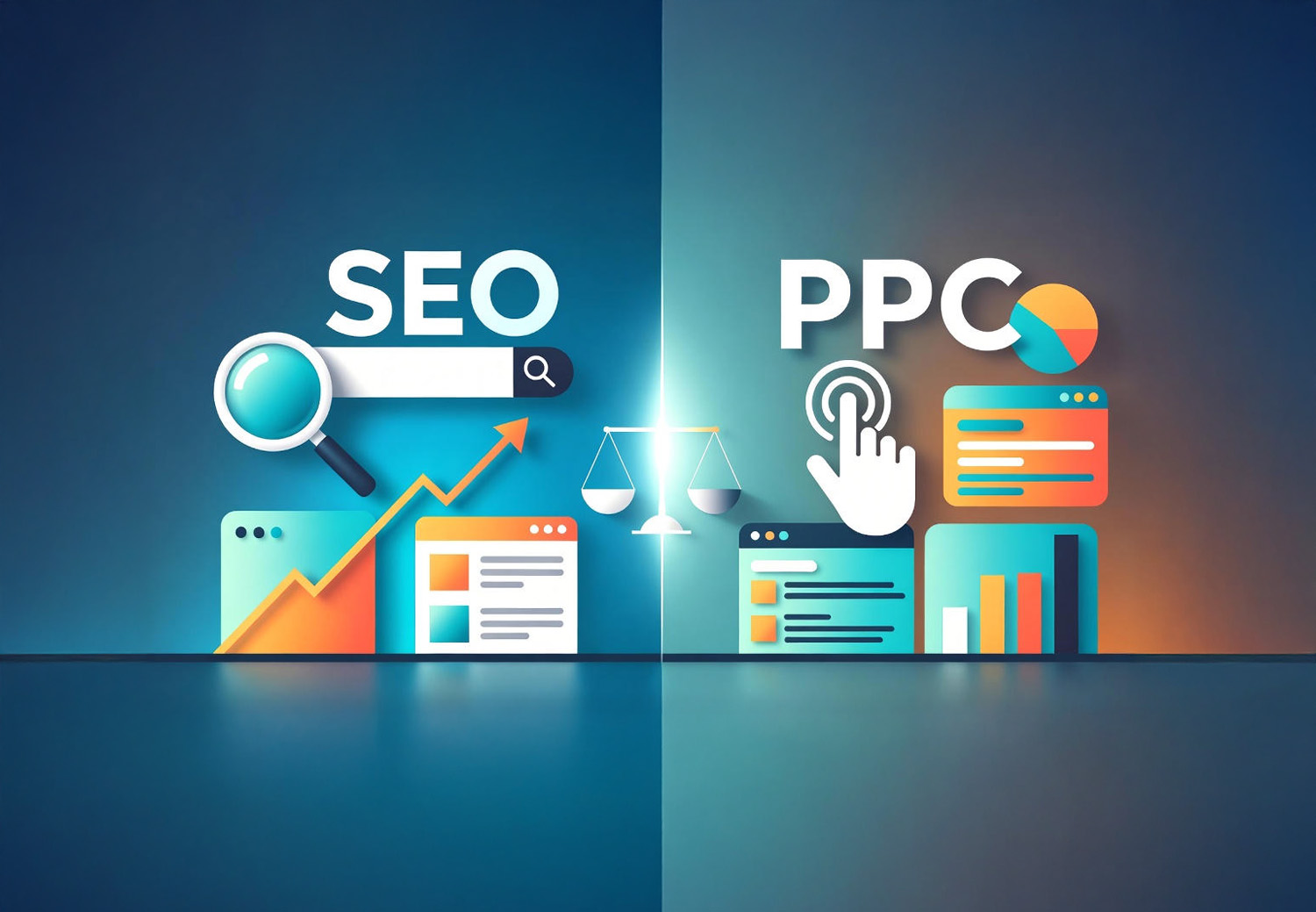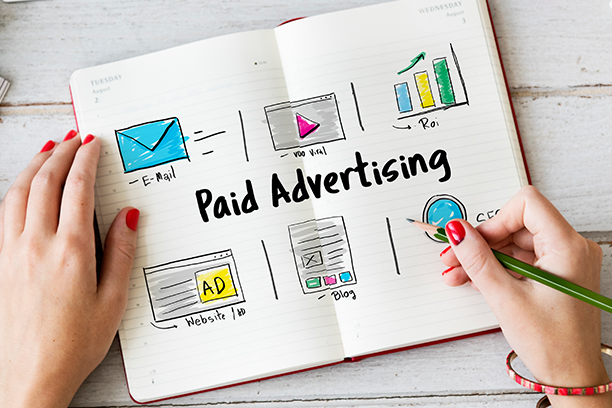Work Hours
Monday to Friday: 9AM - 6PM
Weekend: Closed

In today’s hyper-competitive digital world, getting noticed online is no longer optional—it’s critical. Whether you’re a startup looking for traction, a small business focused on cost-effective marketing, or an e-commerce store ready to scale, the question remains: should you invest in SEO or PPC?
Both strategies offer powerful ways to drive traffic, increase visibility, and grow revenue—but they work differently, serve different goals, and fit different business needs. If you’re not sure which path is right for your company, this guide will walk you through the differences, benefits, drawbacks, and decision-making factors between PPC and SEO.
What is SEO?
Search Engine Optimization (SEO) is the process of improving your website’s visibility on search engines like Google and Bing. When someone types a query like “best digital marketing agency near me,” your website’s position in the search results is determined by how well your content matches their intent, and how authoritative your website is.
SEO is a long-term strategy. It involves optimizing your web pages, creating valuable content, earning backlinks, improving site speed, and ensuring mobile-friendliness. When done correctly, SEO brings consistent, high-quality organic traffic without the need for ongoing ad spend.

Key SEO Components Include:
- On-Page SEO: Optimizing title tags, meta descriptions, content, and images.
- Off-Page SEO: Building backlinks from authoritative websites.
- Technical SEO: Improving site speed, mobile responsiveness, crawlability, and site structure.
- Content Marketing: Creating helpful blogs, landing pages, and resources to match user intent.
SEO doesn’t produce overnight results, but the ROI can be massive over time. Once you rank on the first page, you generate consistent, free traffic with higher trust and conversion potential.
What is PPC?
Pay-Per-Click (PPC) is an advertising model where you pay each time someone clicks on your ad. The most common platform is Google Ads, but PPC also includes Microsoft Ads, YouTube, Facebook, Instagram, and other social channels.
PPC is a short-term performance channel that delivers instant visibility and measurable results. Your ad can appear above organic search results within minutes of launching a campaign. It’s ideal for businesses that want fast traffic, leads, or sales, especially during promotions or product launches.

Key Benefits of PPC:
- Appear instantly on page one of search results.
- Target specific demographics, locations, devices, and times.
- Use keyword intent to serve highly relevant ads.
- Track every click, conversion, and sale.
However, once your ad budget runs out, the traffic stops. PPC success depends on budget control, continuous optimization, and a well-designed landing page.
Pros & Cons of SEO
Pros:
- Sustainable Traffic: SEO can drive traffic for years if maintained.
- Cost-Effective Long-Term: No cost per click; lower customer acquisition cost (CAC) over time.
- Builds Trust & Authority: Users often trust organic results over ads.
- Higher Click-Through Rates (CTR): Organic listings often get more clicks than paid ads.
Cons:
- Takes Time: It may take 3–6 months (or longer) to see significant results.
- Algorithm Dependency: Google algorithm changes can impact rankings.
- Requires Ongoing Content Creation: SEO is not “set and forget”—it needs ongoing effort.
- Competitive Niches Are Harder: Competing for broad or saturated keywords is tough.
Pros & Cons of PPC
Pros:
- Immediate Results: Launch a campaign today, get clicks today.
- Scalable: Increase your budget to increase your reach instantly.
- Highly Targeted: Choose keywords, geography, device, time, and audience.
- Easily Measurable: Track conversions, cost-per-click, and return on ad spend.
Cons:
- Can Get Expensive: Especially in competitive industries (legal, finance, healthcare).
- Limited Long-Term Value: Once you stop paying, the traffic disappears.
- Ad Fatigue: Users may start ignoring your ads.
- Needs Ongoing Monitoring: PPC campaigns require constant testing and refinement.
Key Factors to Help You Choose
Let’s break it down based on critical business considerations:
| Factor | SEO | PPC |
|---|---|---|
| Cost Structure | Initial investment in content & time | Pay for each click; scalable budget |
| Time to Results | 3–6 months or more | Immediate (minutes to hours) |
| Sustainability | Long-term traffic | Traffic stops when budget stops |
| Targeting Options | Based on content & intent | Advanced audience & geo-targeting |
| Ideal For | Long-term growth, trust building | Quick campaigns, product launches |
| Skill Needed | Content writing, SEO optimization | Campaign setup, bid management, ad writing |
Best-Case Scenarios for SEO and PPC
When SEO is Ideal:
- You have a limited budget but can invest time.
- You want to rank for informational or long-tail keywords.
- You want to build brand authority through content.
- You’re planning a long-term digital presence.
When PPC is Ideal:
- You’re launching a new product or event.
- You want to test the demand for a product or service quickly.
- You need results now (e.g., holiday sales, limited-time offer).
- You’re targeting highly competitive, high-converting keywords.
Why a Hybrid Strategy Might Be Ideal
In most cases, you don’t need to choose just one. Many successful businesses use both SEO and PPC strategically:
- Start with PPC to drive immediate leads while your SEO builds up authority.
- Use PPC to promote high-margin or time-sensitive offers, and SEO to build evergreen visibility.
- Use retargeting ads to convert traffic brought in via SEO.
A hybrid approach can increase brand visibility across the funnel, from awareness to conversion, while helping you gather insights that improve both strategies.
Conclusion: So, Which Is Right for You?
The best digital marketing strategy isn’t about choosing SEO or PPC—it’s about choosing the right mix based on your business goals.
- If you’re looking for long-term results, SEO is your best bet.
- If you need quick wins or short-term traffic, PPC is the answer.
- If you want both fast growth and lasting value, combine both.
Still not sure which strategy fits your business best? Contact Segnant for a free digital strategy consultation tailored to your goals.

